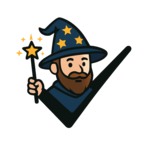Decode Your Downtime: A Friendly Guide to Mindful Hobby Selection
We live in a culture that often glorifies busyness. We’re praised for packed schedules, overflowing to-do lists, and relentless productivity. But what about the quiet moments? The pockets of downtime that, if not intentionally filled, can be consumed by mindless scrolling, anxious rumination, or a general sense of unease? This isn’t a judgment; it’s simply a reality for many. The good news is, reclaiming your downtime and filling it with meaningful hobbies isn’t about adding *another* thing to your list, but about enriching your life in ways that foster well-being, creativity, and personal growth. This guide will help you decode what you truly enjoy and choose hobbies that resonate with your authentic self.
Why Hobbies Matter: More Than Just Passing Time
Before diving into specific hobby ideas, let’s explore *why* hobbies are so beneficial. They’re not frivolous pursuits; they’re vital components of a balanced and fulfilling life. Here’s a breakdown:
- Stress Reduction: Engaging in an activity you enjoy naturally lowers cortisol levels (the stress hormone). Focusing on a hobby shifts your attention away from worries and anxieties, providing a much-needed mental break.
- Enhanced Creativity: Hobbies often require problem-solving, experimentation, and imagination – all key ingredients for boosting creativity. This creativity can then spill over into other areas of your life, improving your work, relationships, and overall outlook.
- Improved Mental Health: Hobbies provide a sense of purpose and accomplishment. They combat feelings of boredom, loneliness, and stagnation, contributing to improved mental and emotional well-being.
- Skill Development: Learning a new skill, whether it’s painting, coding, or woodworking, builds confidence and expands your capabilities. It’s incredibly empowering to see yourself grow and improve.
- Social Connection: Many hobbies offer opportunities to connect with like-minded individuals, fostering a sense of community and belonging. Joining a book club, a pottery class, or a hiking group can broaden your social circle and enrich your life.
- Increased Resilience: Facing challenges and overcoming obstacles within a hobby builds resilience. The ability to persevere through difficulties in a low-stakes environment translates to greater resilience in other areas of life.
Step 1: The Self-Discovery Phase – What Truly Sparks Joy?
Choosing the right hobby isn’t about picking something trendy or what you *think* you should enjoy. It’s about honest self-reflection. This is the most crucial step, so be patient with yourself.
Reflect on Your Childhood
What did you love doing as a child? Think back to those activities that completely absorbed you, where time seemed to disappear. Did you build forts, draw endlessly, collect things, write stories, or play a musical instrument? Often, our childhood passions hold clues to our innate interests. Don’t dismiss anything as “childish” – revisit those feelings and see if there’s a spark.
Identify Your Values
What’s important to you in life? Are you passionate about creativity, learning, helping others, being outdoors, or solving problems? Your hobbies should align with your core values. For example, if you value sustainability, you might enjoy gardening, upcycling, or volunteering for environmental causes. If you value intellectual stimulation, you might gravitate towards reading, puzzles, or learning a new language. Read more about aligning hobbies with values here.
Consider Your Personality
Are you an introvert or an extrovert? Do you prefer working independently or in a group? Are you detail-oriented or do you prefer a more free-flowing approach? Your personality will influence the types of hobbies you enjoy. Introverts might thrive in solitary pursuits like reading, writing, or painting, while extroverts might prefer team sports, group classes, or social activities.
Explore Different Categories
Don’t limit yourself to what you already know. Here’s a broad categorization to get your brainstorming started:
- Creative Arts: Painting, drawing, sculpting, pottery, writing, music (playing an instrument, singing, composing), photography, filmmaking, digital art.
- Crafts & DIY: Knitting, crocheting, sewing, quilting, woodworking, jewelry making, candle making, soap making, scrapbooking, calligraphy.
- Performing Arts: Acting, dancing, singing, playing an instrument, improv, stand-up comedy.
- Outdoor Activities: Hiking, biking, camping, gardening, birdwatching, fishing, kayaking, rock climbing, stargazing.
- Sports & Fitness: Running, swimming, yoga, Pilates, team sports (basketball, soccer, volleyball), martial arts, weightlifting.
- Collecting: Stamps, coins, antiques, books, vinyl records, art.
- Games & Puzzles: Board games, card games, video games, jigsaw puzzles, crossword puzzles, Sudoku.
- Learning & Intellectual Pursuits: Reading, writing, learning a new language, coding, astronomy, history, philosophy, online courses.
- Culinary Arts: Cooking, baking, mixology, brewing, wine tasting.
- Volunteering & Community Service: Working at a local shelter, mentoring, environmental cleanup, fundraising.
Step 2: Experimentation – Trying Things Out
Now that you’ve done some self-reflection, it’s time to experiment! Don’t be afraid to try new things, even if they seem outside of your comfort zone. The goal is to discover what resonates with you, and that often requires stepping into the unknown.
Start Small
You don’t need to invest a lot of time or money upfront. Start with a low-commitment approach. For example, instead of buying an expensive camera, borrow one from a friend or rent one for a weekend. Instead of signing up for a year-long pottery class, take a one-time workshop. This allows you to test the waters without feeling overwhelmed.
Embrace Imperfection
Don’t strive for perfection, especially when you’re just starting out. Hobbies are about the process, not the product. Your first painting might not be a masterpiece, your first attempt at coding might be riddled with errors, and your first knitted scarf might be full of holes. That’s okay! Embrace the learning curve and enjoy the journey.
Set Realistic Expectations
Don’t expect to become an expert overnight. Skill development takes time and effort. Be patient with yourself and celebrate small victories along the way.
Don’t Be Afraid to Quit
If you try a hobby and discover it’s not a good fit, don’t feel obligated to continue. It’s perfectly okay to move on and try something else. The point is to find something you genuinely enjoy, not to force yourself to stick with something you dislike.
Step 3: Making It Stick – Building a Habit
Once you’ve found a hobby you enjoy, the next challenge is to make it a regular part of your life. Here’s how to build a sustainable habit:
Schedule It In
Treat your hobby like any other important appointment. Block out specific times in your calendar and commit to honoring those times. Even 15-30 minutes a day can make a significant difference.
Create a Dedicated Space
If possible, designate a specific area for your hobby. This could be a corner of a room, a spare bedroom, or even just a dedicated box for your supplies. Having a designated space makes it easier to get started and helps you stay organized.
Remove Barriers
Identify any obstacles that might prevent you from pursuing your hobby and take steps to remove them. For example, if you want to start painting but find it difficult to set up, invest in a portable art kit. If you want to read more but get distracted by your phone, put your phone in another room.
Find an Accountability Partner
Share your hobby goals with a friend or family member and ask them to check in with you regularly. Having someone to hold you accountable can increase your motivation and commitment.
Join a Community
Connecting with others who share your passion can be incredibly motivating and inspiring. Join a local club, an online forum, or a social media group dedicated to your hobby.
Resources to Inspire You
Need some more inspiration? Here are a few resources to get you started:
- Skillshare: Offers a wide range of online classes in creative and professional skills. (https://www.skillshare.com/)
- Coursera: Provides access to university-level courses on a variety of subjects. (https://www.coursera.org/)
- YouTube: A treasure trove of tutorials and demonstrations for countless hobbies. (See the embedded video below!)
Troubleshooting Common Challenges
Sometimes, even with the best intentions, we can encounter obstacles. Here are a few common challenges and how to overcome them:
- Lack of Time: Break down your hobby into smaller, more manageable chunks. Even 15 minutes a day is better than nothing. Prioritize your hobbies and schedule them into your calendar.
- Lack of Motivation: Remind yourself of the benefits of your hobby. Focus on the joy it brings you, not the pressure to achieve perfection. Find an accountability partner or join a community to stay motivated.
- Feeling Overwhelmed: Start with one hobby at a time. Don’t try to take on too much too soon. Simplify your approach and focus on the fundamentals.
- Perfectionism: Challenge your perfectionistic tendencies. Embrace mistakes as learning opportunities. Focus on the process, not the product. Learn more about overcoming perfectionism here.
Final Thoughts: Embrace the Power of Play
Ultimately, choosing a hobby is about giving yourself permission to play, to explore, and to nurture your soul. It’s about finding activities that bring you joy, challenge you creatively, and help you grow as a person. Don’t overthink it, don’t be afraid to experiment, and most importantly, have fun! Your downtime is a valuable resource – invest it wisely in hobbies that enrich your life and contribute to your overall well-being. Remember, self-care isn’t selfish, it’s essential. And sometimes, the most productive thing you can do is simply to allow yourself to enjoy the moment. Dive deeper into the benefits of mindful hobby selection here.


Discussion about this post